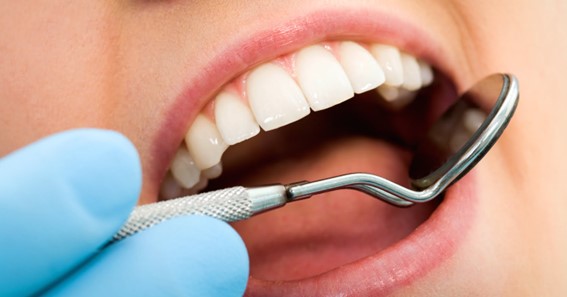Having adequate knowledge of dental plaque and how to eliminate them is important if you want to take your dental health seriously. Plaques are serious dental problems that could lead to poor overall health if not treated promptly. This is why Dental experts like DentalX Dental Clinic have advised that people do a routine check for dental plagues.
Meanwhile, in this article, we’ll be talking about everything you need to know about dental plaque, including its definition, causes, and elimination procedures. So read on!
What Is Plaque?
Plaque is a sticky film created by bacteria and is constantly formed on the teeth. Since it’s a community of living microbes that are surrounded by a gluey polymer layer, scientists call plaque a biofilm. The bacteria present in plaque create acids after you drink or eat. These acids are dangerous because they’re capable of destroying the tooth enamel, which can result in gingivitis or cavities. When not removed on time, plaque can become tough-to-remove tartar.
click here – Want To Know About Topline Lawn Care & Landscaping?
Who Is Prone To Plaque?
Everyone can suffer from tooth plaque. However, your chances of getting more plaque can increase if you:
- Take a high amount of starchy or sugary food and drinks
- Get dry mouth as a result of taking antidepressants
- Have Sjögren’s syndrome
- Have a history of neck or head radiation
What Are The Symptoms Of Plaque?
Whenever your teeth feel fuzzy as you run your tongue over them, there’s a high possibility that you have plaque. Other pointers are severe bad breath and red, swollen, or tender gums that bleed after you brush.
How Can I Prevent Plaque?
Floss Daily
Flossing daily with a dental or water flosser can assist you in getting rid of plaque or even food stuck in the middle of your teeth. It’s even better to do it before brushing. Research has shown that carrying out this procedure before brushing is more effective.
click here – What Are People Saying About Landscaping Services In Houston, TX
Brush Twice Daily
Brushing your teeth twice daily with a soft toothbrush and fluoride toothpaste will help keep plaques away. If you have the chance, you can also decide to brush after every meal. When your toothbrush is not near, you can chew sugarless gum instead. Don’t also forget to ensure every brushing session lasts for two minutes at least. Experts also advise that your change your toothbrush after two or three months. This is because toothbrushes don’t work well when they’re too worn out.
Also, look for expert dentists Leigh-on-Sea that have positive reviews and having good working experience.
Choose Healthy Foods
Despite how pleasant sweet and sugary foods taste, they do a lot of harm to your teeth. They increase the activities of bacteria in your teeth and can cause a massive build-up of plaque. So, you can reduce your chances of getting plaque by minimizing the number of sugary foods and drinks you consume daily. Also, ensure you take a lot of water when you eat these kinds of food to eliminate traces of food. Instead of surgery foods, you should strive to take more nutritious foods and drinks like cheese, fruit, raw vegetables, and plain yogurt.
Use Mouthwash
In addition to using fluoride toothpaste, you can get an antiseptic mouthwash. This kind of mouthwash helps to protect your teeth against infection by inhibiting the build-up of plaque around the teeth. It also helps to loosen hidden food particles, which makes brushing & flossing easier. Additionally, it gives a fresh minty breath and decreases the possibility of getting cavities. Interestingly, it can also help in relieving pain in the mouth caused by conditions like pericoronitis or aphthous ulcers.
See A Dentist
Dental checkups at least twice yearly are also effective in keeping plaques away from your teeth. Regardless of how good you are at personal dent care, there are still areas you won’t be able to reach, like behind the second molars. During your visit, your dentist will scrape plaque or tartar from whichever part of your teeth it is hidden. They may also help apply dental sealants to keep plaque away from the teeth’s chewing surfaces. They’ll examine all parts of your teeth and inform you of any developing dental issues so they can be fixed on time.
Oil Pulling
The first step in performing an oil pull is to swish close to one tablespoon of olive or coconut oil in your mouth. This should last for twenty to thirty minutes. These oils can help remove plaque or prevent tooth decay. It’s preferable to go for coconut oil since it contains fatty acids like lauric acid, which has antimicrobial and anti-inflammatory effects.
Use Baking Soda
According to research, people who combined toothpaste with baking soda removed more plaque than those who didn’t. Besides, they had a lower percentage of plaque growth back. Since it’s a natural cleanser and abrasive, baking soda is good for removing plaque.
In conclusion, preventing plaque from destroying your teeth is possible if you’re committed to it. All you have to do is follow the tips explained above consistently.

